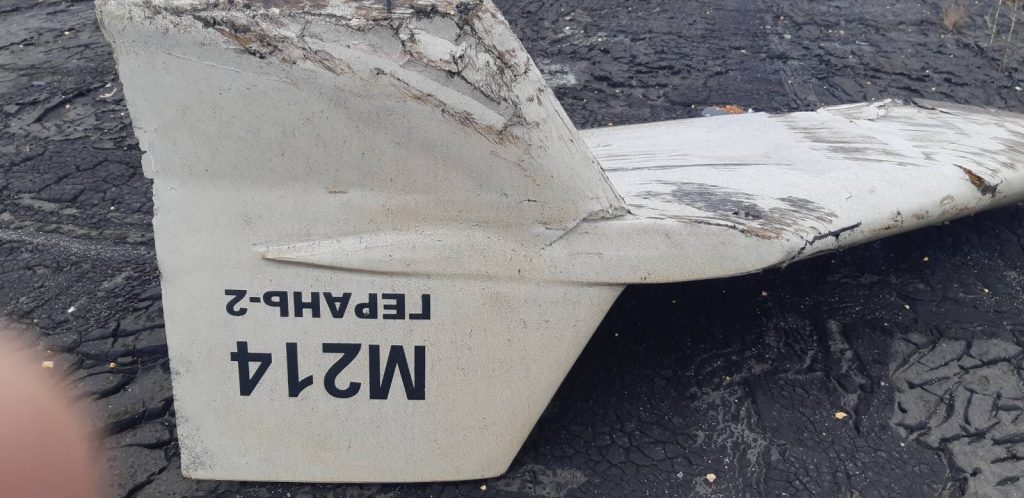IN THE MEDIA
Australia’s inaction on Iran sends a dangerous message to China
November 16, 2022 | Oved Lobel

News.com.au – 16 November 2022
In early July, the United States revealed that Iran was about to transfer hundreds of drones to Russia to help it attack Ukraine.
Since August, those drones, of which over 1000 have been shipped already, particularly the Shahed-136 and Shahed-131 “suicide drones”, have been wreaking havoc on Ukrainian civilian infrastructure, despite Ukrainian success in shooting many of them down. Iranian advisers are reportedly on the ground in occupied Ukraine helping the Russians conduct these attacks.
Now Iran is in the process of sending hundreds more drones and scores of ballistic missiles with ranges from 300-700km to Russia. It’s part of a deal reportedly sealed on September 18 in Moscow to help Russian President Vladimir Putin’s terror campaign against Ukraine’s water and power infrastructure and other civilian targets.
Unlike the drones, these ballistic missiles pack a far larger punch and are nearly impossible to defend against with Ukraine’s small and ageing air force and motley assortment of old Soviet and Western air defence systems, especially when accompanied by salvos of drones. Ukraine Air Force Command spokesman Yuriy Ihnat recently said his country had “no effective defence against these missiles”.
In response to the drone shipments, the US, EU and UK all strongly condemned Iran and imposed heavy sanctions, partially because the weapons transfers violate UN Security Council Resolution 2231, which codified the 2015 Joint Comprehensive Plan of Action (JCPOA) nuclear deal that Iran has refused to re-enter.
Australia, on the other hand, has not even condemned Iran, much less imposed sanctions for its participation in the destruction of Ukraine. And this, unfortunately, is not the only issue where Australia remains out of step with nearly all of its allies concerning Iran.
The Iranian regime’s bloody crackdown on protests rocking the country for six weeks since 22-year-old Mahsa Amini was allegedly beaten to death by Iran’s “morality police” for not wearing her hijab properly have resulted in a slew of condemnations across the world. Iran has killed hundreds of protesters and detained thousands more, many who are horrifically and systematically tortured, according to reports.
Here, at least, Australia has strongly condemned Iran at the highest levels. DFAT’s Middle East Branch assistant secretary Marc Innes-Brown even claims to have summoned Iran’s charge d’affaires three times to express concerns about the crackdown as well as about reports that the Islamic Revolutionary Guard Corps (IRGC) is harassing and threatening Iranians in Australia itself.
But unlike its allies, including Canada, the US, UK, and EU, which have all imposed extremely tough sanctions against the regime and particularly against the IRGC, (the EU is even reportedly considering listing the IRGC as a terrorist organisation), Australia has once again done nothing.
Indeed, between Australia’s first official condemnation on September 27 and the most recent condemnation last week, several of these countries and groupings have imposed multiple tranches of sanctions against Iran. Even New Zealand has broken off its bilateral human rights dialogue with Iran, saying such an approach was “no longer tenable”.
Australia’s refusal to act against Iran also extended to the IRGC proxy Hezbollah until a year ago, when the previous federal government finally designated the group in its entirety as a terrorist organisation.
Previously, many countries had imposed an arbitrary distinction between Hezbollah’s military and political wings, a distinction Hezbollah itself mocked, and only designated the former. This distinction still unfortunately persists in some countries.
Australia, however, refused to do even that, for decades instead imposing a further non-existent distinction between Hezbollah’s “military wing” and its so-called “External Security Organisation” and only designating the latter.
No coherent explanation has been given for why Australia consistently chooses to isolate itself from its allies when it comes to Iran, both rhetorically and practically. Yet whatever the rationale, it sends a very dangerous signal to China, whose rise and increasing belligerence constitutes a most serious long-term national security concern.
China is part of a strategic alliance with Iran and Russia, helping keep both regimes afloat despite sanctions and, via proliferation agents, is “the most important overseas supplier of items and material for Iran’s missile program,” according to the US State Department. Those same missiles China helps Iran build are now headed to Russia to help kill Ukrainians.
If Australia is unwilling to go along with its allies in punishing the brutal regime in Tehran, which is economically and militarily weak, politically isolated and geographically distant, why should anyone expect it would act decisively when the stakes are far higher?
Australia has a moral and strategic imperative to join its allies in punishing Iran not only for its domestic crackdown, but for its material aid to Russia in killing Ukrainians, as well. This will not only provide practical help for Iranian protesters and Ukrainian civilians, but it will send a powerful message that Australia is willing to stand up for its principles and act in concert with like-minded countries.
Conversely, an inability or unwillingness to take a stand on such a straightforward issue sends precisely the opposite message, whetting the appetite of an imperial power far more dangerous and far closer to home.





